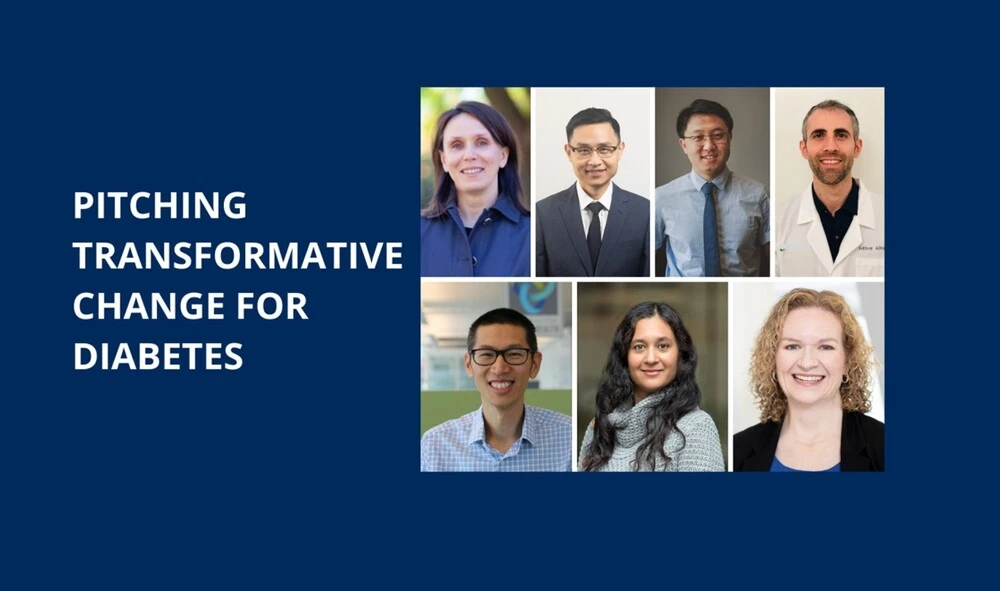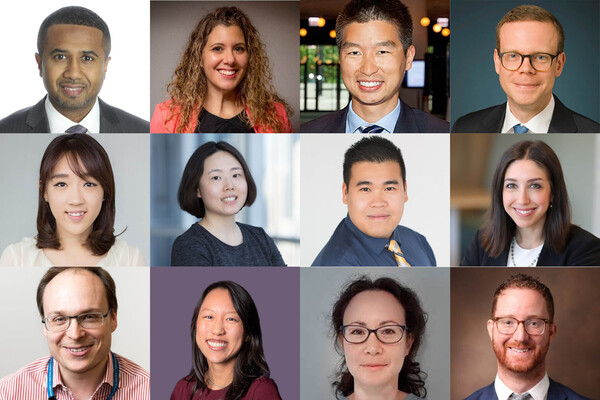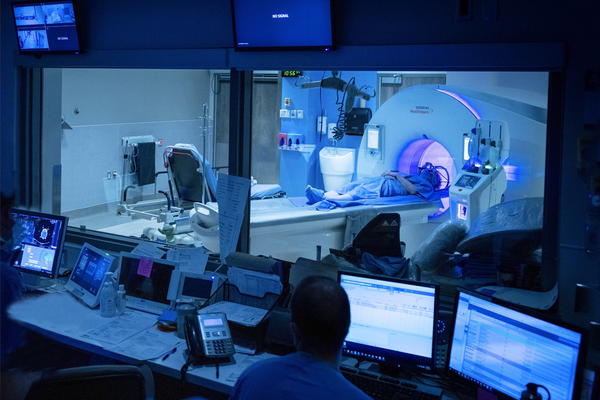Mobile Menu
- Education
- Research
-
Students
- High School Outreach
- Undergraduate & Beyond: Community of Support
- Current Students
- Faculty & Staff
- Alumni
- News & Events
- Giving
- About

In November, the Novo Nordisk Network for Healthy Populations at the University of Toronto hosted its first pitch event. Seven researchers were selected from the group of applicants to pitch their ideas for a project that could have a tangible impact on improving type 2 diabetes outcomes in Mississauga and Peel Region.
Each of the seven pitch presenters were given four minutes to explain their project to a group of judges, which included Brampton South’s Member of Parliament, Sonia Sidhu, and experts from local community groups, research programs and the health care field. In that four minutes presenters needed to outline the need, explain what they wanted to do, and reference the partners they would be working with on the project.
This type of pitch competition is outside the comfort zone of many research scientists, but the Novo Nordisk Network wanted to do something that would encourage participants to speak directly and clearly to everyone in the community, rather than just to the academics and fellow scientists in the room.
“A central priority of the Network is to ensure the research we do engages the community we serve. We wanted to find a way for our community stakeholders, such as patients, providers, and decision-makers in the region, to hear about and give input on research proposals,” explains Dr. Lorraine Lipscombe, Director of the Novo Nordisk Network for Healthy Populations. “With seven applications, I thought this goal would be best served by having an event with short 'elevator' pitches from each applicant. This not only helped researchers hone their skills at communicating their ideas in a succinct, relatable and engaging way, it also provided an exciting opportunity for the Novo Nordisk Network to showcase our projects and engage the community in the selection process.”
To aid presenters, the Novo Nordisk Network arranged for Science Communicator, Krista Lamb, to have one-on-one time with any participant who wanted additional support. This allowed them to test out their presentations on a non-academic audience and to learn new ways of engaging with community members effectively.
On the day of the event, the presentations were fast-paced, creative and to-the-point. Lipscombe was extremely pleased with how applicants stepped up to this new challenge. “The event was a great success - presenters highly valued the experience and audience members found it informative and entertaining. As the director, I greatly appreciated the feedback from judges on what projects will have the most impact for their community and how best to achieve that impact.”
At the end of the pitches, the judges deliberated while audience members watched an interview with Dr. David Campbell from the University of Calgary about his current pilot program, which is centred on providing support for those living with diabetes while experiencing housing insecurity (scroll below to find the video!). This gave the judges time to make their decisions while attendees learned about the ways a community intervention can provide needed support.
And the final decision? Five projects are moving forward to the full proposal stage. Drs Jeff Alfonsi, Calvin Ke, Vasanti Malik, Lisa McCarthy, and Terrence Tang will all have the chance to submit a detailed plan, and the most appropriate project(s) will receive the Novo Nordisk Network’s first Catalyst Grants. Results are expected to be announced the week of April 3rd.

